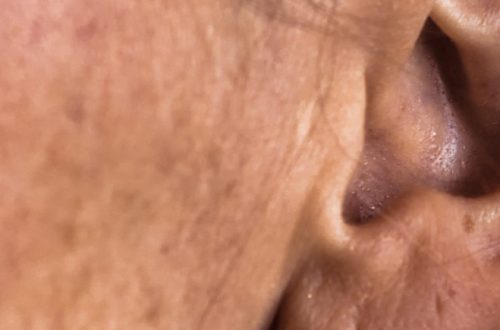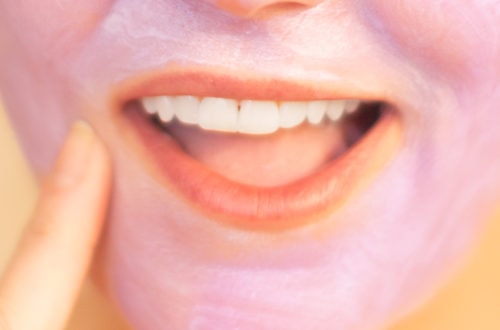
Retinoids
I think we may have found the fountain of youth, at least as far as our skin’s appearance goes.
The vitamin A family, or retinoids, just may become your best friend like it is mine. It goes by many names including retinal, retinol, retinaldyhyde, retinyl palmitate, and retinoic acid. Our body has the ability to turn any of these forms into the others but retinoic acid is the active form and the one proven to fight lines and wrinkles and stimulate collagen.

Retinoids have been studied and used for greater than 25 years and have been proven over and over again to be the best anti-ageing product currently available.
Our skin is our protector, acting as the gate keeper, and only those with the correct password will be allowed to enter. It will only let in fat soluble vitamins because it is lipophilic which means fat loving. Vitamin A happens to be a fat-soluble vitamin, so our skin has opened the doors. Fat-soluble retinoids can penetrate into the deeper layers of skin to begin to fix any damage that has been done.
There are retinoid products that you can purchase from the drugstore (over the counter or OTC) and they include retinol, retinyl linoleate, retinaldyhyde, and retinyl palmitate.
Retinol: The strongest you can obtain without a prescription. It treats wrinkles and acne and assists with cell turnover but without the side effects of the prescription strength. The most an OTC product can contain is 1%.
Retinaldehyde: The closest to retinoic acid and most likely to match its benefits but it can cause irritation.
Retinyl linoleate and retinyl palmitate: Less irritating than retinol and retinaldehyde but not typically used in enough concentration to have good effect.
There are retinoid products that you can only obtain with a prescription and this includes brand names like Retin-A, Tazorac, and Renova. Differin is a brand that was once prescription but is now available OTC.
Benefits of using retinoic acid:
- Reduction of wrinkles and fine lines
- Increase in collagen production
- Smoother skin texture
- Increase skin thickness
- Improves elasticity
- Helps eliminate acne
- Improves overall skin tone
- Helps decrease dark spots
- Increases skin hydration
- Stimulates skin repair
- Decreases enlarged pores
Side Effects:
- Because retinoic acid is a powerful exfoliator a lot of people experience redness, scaling, peeling, and burning. The side effects generally subside after a month or two of continued use.
- Retinoids have been shown to cause birth defects. This was seen with the use of the oral form called isotretinoin or Accutane. Because of this risk it is not recommended that women who are pregnant or breast feeding take or apply any retinoid containing product.
What to keep in mind when looking for/using retinoids:
- They can make your skin more sensitive so stop using them at least a week before facial waxing. They might also make it difficult to tolerate facial scrubs, chemical peels, and certain facial brushes.
- If you have rosacea, retinoids may make it worse.
- Sunlight deactivates retinoids so it is best used during the night. There is some evidence to suggest that as long as you apply sunscreen over the top of your retinoid it will be ok, but I prefer to use it at night just to be sure. I’m not a big fan of wasting money.
- Retinoids make your skin more sensitive to sunlight so it is even more important that you use a sunscreen daily.
- Retinoids are denatured by light and air. Look for dark pumps, small mouth aluminum tubes, and single use vials or capsules.
- Because prescription strength retinoids can have unattractive side effects it is best to start with and OTC retinoid first to see how your skin tolerates it. You can even start with a low dose OTC retinoid and work up the OTC strengths until your skin tells you that you might be ready for the prescription strength. There are different prescription strengths as well.
- When in doubt, consult a dermatologist. If you want a prescription strength retinoid you will need to visit your dermatologist any way.
- Do not use a retinoid containing product while pregnant or breast feeding.
Some retinol products I like:
- Rodan + Fields Redefine Intensive Renewing Serum. This comes in individual use capsules so the product remains active. It works even better when used with a micro-needling roller. Rodan + Fields offers a set that includes the Intensive Renewing Serum and a micro-needling roller called Redefine AMP MD System.
- Philosophy Help Me
- Dermalogica Overnight Retinol Repair
- Replenix All Trans-Retinol Soothing Serum. Replenix offers various strengths of retinol so you could start off with the lowest strength and move up as your skin adjusts.
- Murad Retinol Youth Renewal Serum
- Exuviance Super Retinol Concentrate
- SkinMedica Retinol Complex. SkinMedica also offers varous strengths of retinol.
- To treat and prevent acne there is now an FDA approved, prescription strength retinoid that is available OTC called Differin
For further reading on retinoids:
- http://www.sciencedirect.com/science/article/pii/019096229070265J
- http://www.nejm.org/doi/pdf/10.1056/NEJM199308193290803
- There has been a lot of research done so informtion is pretty easy to find.






3 Comments
Pingback:
Pingback:
Thompson Cannon
Amazing post! We’re linking to this article on our site.
Keep up the great writing.
King regards,
Thompson Cannon